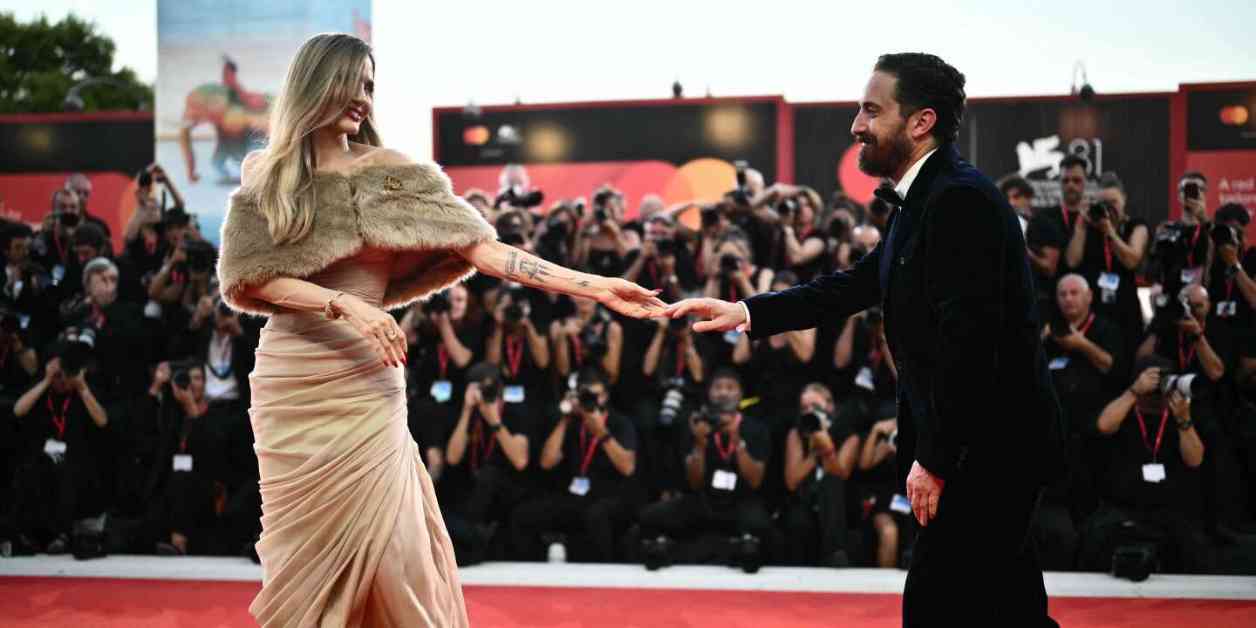Pablo Larrain’s Film on Maria Callas’s Final Days in Venice
The Venetian competition kicked off on Thursday, August 29th, with two films that made quite an impression. On one hand, we have the somewhat conventional film « Maria, » which delves into the final days of legendary opera singer Maria Callas, portrayed by Angelina Jolie. Directed by Chilean filmmaker Pablo Larrain, known for his work on biopics, « Maria » marks his fifth foray into this genre. On the other hand, we have the sensual and eccentric « El Jockey » by Argentine director Luis Ortega, known for his previous work on « The Angel » presented at Cannes in 2019.
In « Maria, » Angelina Jolie delivers a moving performance, capturing the essence of the iconic singer without attempting to mimic her. Instead, she focuses on embodying Callas’s presence and deep melancholy. The film portrays Callas as she struggles with the loss of her voice and the heartbreak of her failed romance with the wealthy Onassis, who left her for Jackie Kennedy. While Jolie’s portrayal is heartfelt, the polished cinematography at times veers towards excessive glamour, such as the shot of her surrounded by numerous bags in a moment of despair.
The supporting cast, including Alba Rohrwacher as the devoted cook, Pierfrancesco Favino as the attentive assistant, and Vincent Macaigne as the concerned doctor, add depth to the narrative. The film follows Callas’s last week, showcasing the contrast between the elegance of her Parisian home and her external engagements, from rehearsals with a pianist to interviews with a journalist. The film’s main challenge lies in the portrayal of Callas’s singing voice, prompting the question of whether Angelina Jolie should sing or not.
Pablo Larrain navigates this issue by blending archival footage of Callas performing on stage with scenes featuring Jolie, creating a seamless transition between past and present. The aged film aesthetic, with a dusty veil overlaying the visuals, adds a nostalgic touch to the narrative. Jolie, who underwent vocal training for the role, delivers a poignant performance as a defeated diva, allowing her character to explore the depths of her emotions without the burden of showcasing her former vocal prowess.
Despite the film’s emotional depth, there is a sense of detachment in the portrayal of secondary characters, hinting at a deliberate choice to emphasize the protagonist’s isolation. The film captures Callas’s internal struggle as she grapples with her fading talents and lost love, painting a poignant picture of a once-great artist in decline.
Exploring Maria Callas’s Legacy
As the film delves into the final days of Maria Callas, it offers a glimpse into the life of a legendary figure whose legacy continues to fascinate audiences worldwide. Callas’s impact on the opera world and her enduring influence on contemporary artists are highlighted through Jolie’s nuanced portrayal. The film serves as a tribute to Callas’s artistry and her ability to captivate audiences with her voice and presence.
The Enigmatic « El Jockey »
In contrast to the traditional narrative of « Maria, » Luis Ortega’s « El Jockey » presents a unique and compelling story of reinvention and redemption. The film follows the journey of a jockey, played by Nahuel Perez Biscayart, who rises above adversity to change his fate. Ortega’s distinctive style and bold storytelling captivate audiences, offering a refreshing take on the classic hero’s journey.
« El Jockey » stands out for its daring approach and unconventional storytelling, drawing viewers into a world of intrigue and transformation. The film’s exploration of personal growth and resilience resonates with audiences, showcasing the power of the human spirit to overcome challenges and forge a new path. Ortega’s masterful direction and Biscayart’s compelling performance elevate « El Jockey » to a must-see cinematic experience.
In conclusion, Pablo Larrain’s « Maria » and Luis Ortega’s « El Jockey » present contrasting narratives that offer a unique perspective on the human experience. While « Maria » delves into the emotional turmoil of a fading star, « El Jockey » celebrates the triumph of the human spirit in the face of adversity. Both films showcase the power of storytelling to evoke emotions, provoke thought, and inspire audiences to reflect on the complexities of life and art.

